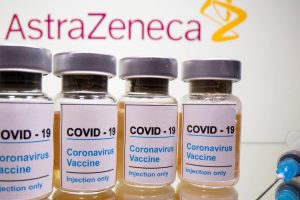By Valentina Lares
MADRID, May 13 2021 (IPS) – While Western countries were busy with their own vaccination campaigns, Russia has filled the leadership vacuum in developing countries.
Amid the West’s scramble for vaccines, a trickle of news flies under the radar. Argentina becomes the first country in South America to produce Russia’s Sputnik V vaccine. The first shipment of Sputnik V is promised to Peru by May. Some 11,000 Sputnik V doses reach North Macedonia, while Tunisia begins administering 30,000 doses, and 1.7 million more are promised to Bolivia by May. The African Union confirms it has received an offer of 300 million doses from Russia, which has already signed agreements to produce tens of millions of doses in China, Brazil, Iran and Serbia.
While we weren’t looking, Russia’s Sputnik V became the cornerstone of pandemic response for the developing world.
The race for influence
The vaccine offers a unique chance to launder Russia’s reputation. But the Sputnik V jab is about more than image. It’s a calculated campaign to increase the Kremlin’s power and influence through a global scientific, diplomatic, and media influence operation.
Russian capabilities align elegantly with the world’s pandemic needs. As developing countries tried and failed to secure enough vaccine supplies through Western mechanisms, headlines worldwide hail Russia as the partner that really comes through when it counts.
As developing countries tried and failed to secure enough vaccine supplies through Western mechanisms, headlines worldwide hail Russia as the partner that really comes through when it counts.
Sputnik V is the image of Russia the Kremlin wants to project. Far from the authoritarian, bellicose, annexationist Moscow that poisons its domestic political opponents and interferes in its rivals’ elections, Sputnik V casts Russia in the role of scientific superpower and pandemic saviour.
Flexing the media-muscle
Russia’s official mouthpieces — Russia Today, Sputnik Radio, and the TASS news agency — minutely cover each new country, from Laos to Panama, that approves Sputnik V for use, while the Russian Direct Investment Fund, the Kremlin agency that bankrolled Sputnik V’s development, trumpets Russia’s achievement not just in finding a vaccine first, but also in making it widely available.
Sputnik V’s Twitter feed (because of course, Sputnik V has its own Twitter feed) pumps out messages once or twice an hour — ‘A planeload of vaccines lands in Armenia!’ — or retweets good news from partner countries, such as this one, from the Mexican Health Ministry, which claims that Sputnik V is the only vaccine with a 0 per cent chance of producing serious adverse side effects.
What Russia can no longer achieve with its declining military strength, Flemming Splidsboel Hansen at the Danish Institute for International Studies writes, it now seeks through cognitive and digital means.
And Russia’s storied bot armies are on the march on the vaccine’s behalf. In December 2020, an investigation in The Daily Beast found that a Russian state-linked content farm known as Caliwax was behind Why Africa should focus on Russia’s Sputnik V vaccine, a viral WhatsApp chain that spread far and wide through Ghana and Nigeria.
Meanwhile, sources that the State Department’s Global Engagement Centre describes as ‘guided’ by Russian state intelligence have been peddling between two and three pieces a day hyping the arrival of Sputnik V in locations around the world.
What Russia can no longer achieve with its declining military strength, Flemming Splidsboel Hansen at the Danish Institute for International Studies writes, it now seeks through cognitive and digital means.
Supporting allies
First in line for the Russian jab has been Moscow’s long-time allies, typically led by autocrats like Nicolás Maduro of Venezuela. ‘The vaccines underline the anti-Western bloc’s scientific prowess,’ says Félix Arellano, a professor of international relations at the Universidad Central de Venezuela in Caracas.
‘Ideology demands it to be portrayed as greater than the West’s. Russia’s posture, in offering up highly effective vaccines at a low price for countries like Venezuela, is media-driven. It’s how Russia and its allies seek to show that authoritarian governments can also grow in the scientific realm, that it’s possible to grow without democracy.’
Argentina, under a proto-socialist government, was the first to send a team to Moscow to translate Sputnik V’s technical documentation to Spanish and set up its own production facilities.
Other countries soon followed suit: Mexico, Brazil, Bolivia, and even U.S. allies like Peru, Chile, and Colombia. These last three were the ultimate feather in the Kremlin’s cap, the final seal of approval on an operation that is succeeding largely thanks to the West’s navel-gazing inaction.
‘At this point the discussion, at least in Peru, grants the need to negotiate to secure whatever vaccine is on offer,’ explains Oscar Vidarte, a professor of international relations at the Pontificia Universidad Católica de Perú in Lima.
Western failures are Russia’s success
For Colombia, Washington’s most reliable ally in South America, buying into Sputnik V serves two purposes: immunising a vulnerable population and rebuilding bilateral links with Moscow, which had been icy since Colombia expelled two Russian diplomats accused of spying in Colombian oil and mining regions last December.
‘We’re [Washington’s] key ally in the region,’ says Mauricio Jaramillo, who teaches international relations at the Universidad del Rosario in Bogotá, ‘and the U.S. is not trying to leverage vaccines to project its power or earn prestige.’
Russia makes sure to portray vaccine supply deals not as charity, but as partnerships among equals. Giving the leaders of poor countries the chance to say ‘I’m doing something about this’ is almost as big a prize as the shots themselves, he says.
The West hasn’t so much lost this fight as forfeited it. The World Health Organisation’s Global Vaccine Access Fund, or Covax, amounts to a clearinghouse for the West’s leftovers.
The Biden administration has pledged some $4 billion to Covax, but the WHO’s director-general, Tedros Adhanom Ghebreyesus, acknowledges that ‘when there are no vaccines to buy, money is irrelevant.’
Arellano has pointed out that it’s not just access to ample supply that’s tilting the field in Moscow’s favour: It’s how the Russians approach supply agreements. Russia makes sure to portray vaccine supply deals not as charity, but as partnerships among equals.
Giving the leaders of poor countries the chance to say ‘I’m doing something about this’ is almost as big a prize as the shots themselves, he says.
Coming through when it really counts
Sputnik V’s successes keep mounting. The European Union’s shambolic vaccine roll-out has brought even some member countries like Slovakia, Hungary, Greece, and the Czech Republic knocking on Moscow’s door. Each has had to negotiate unilaterally for its share.
Italy and Spain are now considering doing the same, and the European Medicines Agency has had no choice but to formally consider certifying the Russian vaccine, softening its line in the wake of Crimea and Navalny.
To be sure, liberal democracy need not fear for its life from the Russian vaccine. But the West has left a huge leadership vacuum at a moment of acute crisis that Russia is determined to exploit.
Western democracies, and particularly the United States, have lost too many opportunities to the pandemic — not least among them the chance to back their allies, firm up their influence and position themselves as the go-to model for how to manage a crisis that, many scientists fear, could be repeated sooner than many realise.
Where will the world turn then?
Source: International Politics and Society (IPS) published by the International Political Analysis Unit of the Friedrich-Ebert-Stiftung, Hiroshimastrasse 28, D-10785 Berlin.
This article was originally published in the community blog Persuasion.




